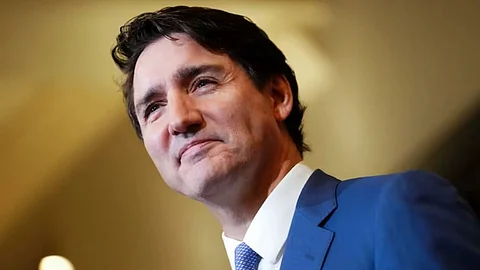

The Federal Court in a decision released late Thursday evening dismissed the constitutional challenge to Prime Minister Justin Trudeau’s prorogation of Parliament.
“The applicants failed to demonstrate that the prime minister exceeded any of the limits established by the written constitution or by the unwritten principles they identified," wrote the judge.
Trudeau on January 6 announced his intent to resign as prime minister. However, rather than call an election and have Canadians democratically decide what party will lead the nation into a potential trade war with the United States, he prorogued Parliament while the Liberal party selected a new leader.
The Justice Center for Constitutional Freedoms (JCCF), the legal organization that represented two men from Nova Scotia who launched the legal challenge against the 77-day prorogation, is currently studying the 96-page decision.
David MacKinnon and Aris Lavranos argued MPs should immediately be ordered back to work and Parliament continue as though it hadn’t been prorogued.
Members aren't expected to return to work until March 24 at 2 p.m..
Federal Court Chief Justice Paul Crampton on January 18 expedited the case and a hearing was held on February 13 and 14.
A Parliamentary prorogation case has never been heard by the court before in Canada.
The Government of Canada, represented by the Attorney General, argued the courts have no role to play in such a matter — however, Crampton disagreed with that in his ruling.
“[The courts] play a fundamental role in holding the executive and legislative branches of government accountable,” wrote Crampton.
"Court has jurisdiction to review the decision."
Crampton added that role extends to adjudicating exercises of the prerogative power to advise prorogation, notes JCCF.
"This issue has the requisite 'sufficient legal component to warrant the intervention of' this court," states the decision.
Crampton ruled the applicants failed to demonstrate that the prime minister’s prorogation exceeded the limits of his legal authority, explained JCCF in an X threat breaking down the decision.
"On their face, those other reasons [for advising prorogation] related either to the business of Parliament or to what appears to be the prime minister's view of the public interest,” wrote Crampton in the decision.
“It is not the court's role to question the merits or wisdom of those reasons.”
Further, while Crampton acknowledges it’s “justiciable” for the matter to go through the courts, he says it is not justiciable for the court to decide whether calling an election would have been Trudeau’s only legitimate and democratic way to reset Parliament, explains JCCF.
